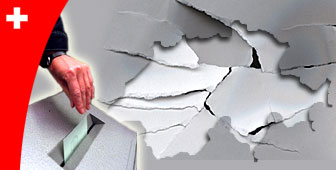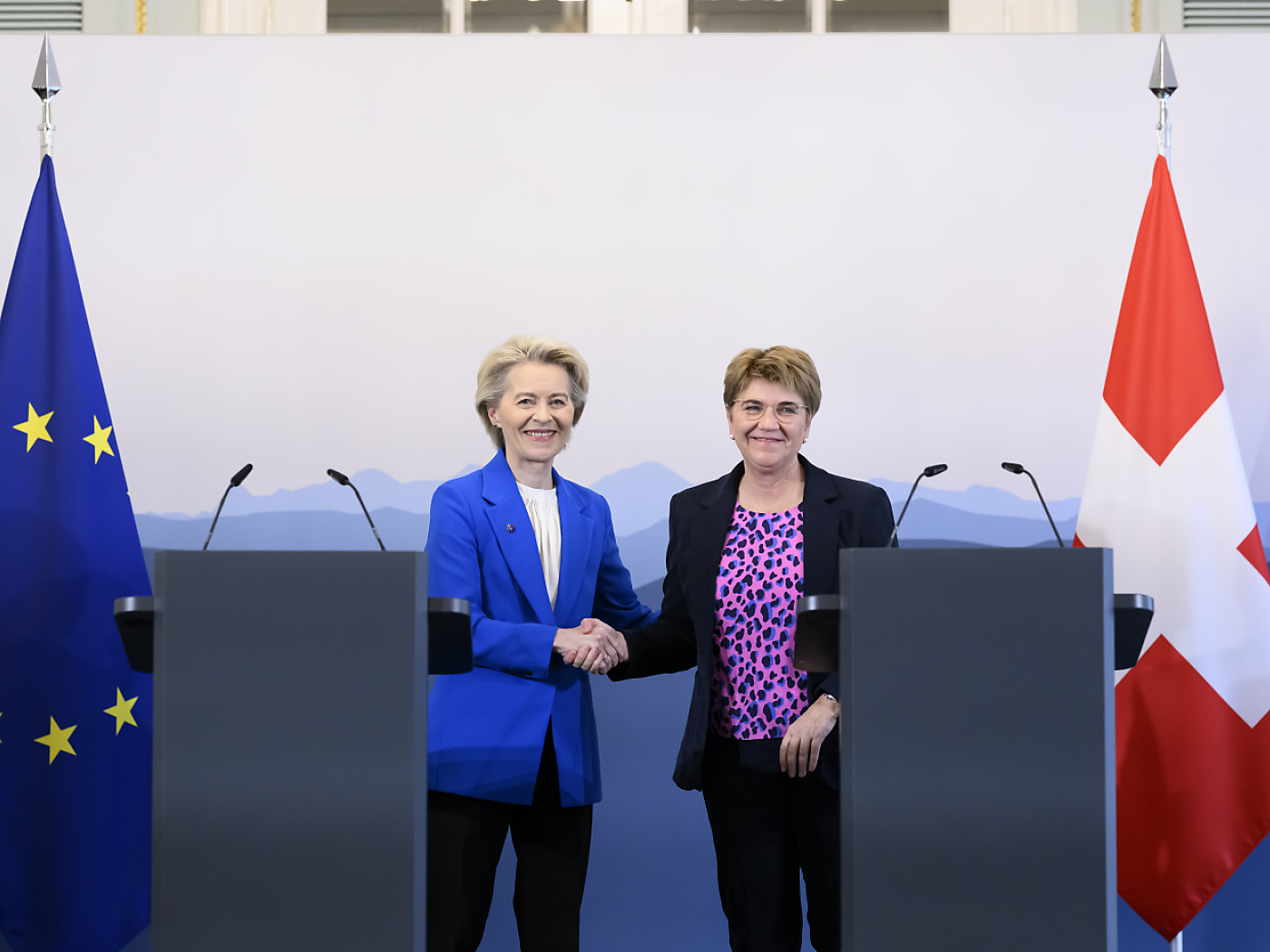Wafer-thin majority approves Swiss army reforms

In one of the closest votes for several years, the people of Switzerland narrowly approved reforms which will change the future role of the army. Final results from Sunday's referendum gave supporters of the reforms a two per cent margin of victory.
The final outcome was in doubt until the very last of Switzerland’s 26 cantons -the populous regions of Bern, Zurich and Vaud – announced their results. Turnout was 41 per cent.
Voters were deciding on two proposals, which will allow Swiss soldiers to be fully armed when taking part in international peacekeeping missions, and permit Switzerland to take part in military training exercises with other countries.
Broadly speaking, the results indicate that many parts of French-speaking western Switzerland voted “no” to the army reforms, joining ranks with right-wing German-Swiss, spearheaded by the populist politician, Christoph Blocher. In general, the results also indicate a split between city and countryside, with Switzerland’s urban population more in favour of the reforms.
The defence minister, Samuel Schmid – speaking on behalf of the government – welcomed the result.
However, he said the narrow margin of victory meant there needed to be further dialogue on security policy with the Swiss population, and a new consensus had to be found. He said the government had not received a blank cheque to carry out army reforms.
Some analysts say that, despite its victory, the outcome of Sunday’s vote is a disappointment for the government, which had campaigned strongly in favour of both proposals.
The government was joined by three of the four governing parties in their campaign. But they faced combined opposition from members of the right- and left-wing.
The right-wing launched an emotive campaign, backed by lurid posters and advertisements, claiming that Swiss soldiers’ lives would be lost on foreign battlegrounds if the proposals were approved. They also said greater Swiss involvement in the international military arena would compromise the country’s neutrality.
They were backed by a number of left-wing Swiss, including parliamentarians in the Social Democratic Party, who opposed the measure, saying greater military involvement overseas was not the right way to secure peace, and that any additional money earmarked for the army would be better spent on social programmes.
The government, however, maintained that approving an expanded role for the army would indicate both that Switzerland was prepared to play a greater role in international peacekeeping missions, without harming the country’s neutrality, and that the country was opening up for greater integration into the international community.
Swiss soldiers have taken part in international military missions, mainly in a logistical capacity. They were involved, for example, in peacekeeping efforts in Kosovo, but were unarmed and placed under Austrian protection.
Sunday’s vote was also seen as an important test of voters’ intentions, ahead of a referendum next year on United Nations membership. The government is pressing hard for Switzerland to join.
Switzerland is not a member of the UN. A proposal to join the world body was rejected in 1986, although the Swiss are heavily involved in many UN agencies.
In another referendum on Sunday, the Swiss voted by a 2-1 majority in favour of a change to the constitution, which will end the state’s ability to determine the number of Roman Catholic bishoprics in the country.
swissinfo

In compliance with the JTI standards
More: SWI swissinfo.ch certified by the Journalism Trust Initiative








You can find an overview of ongoing debates with our journalists here . Please join us!
If you want to start a conversation about a topic raised in this article or want to report factual errors, email us at english@swissinfo.ch.